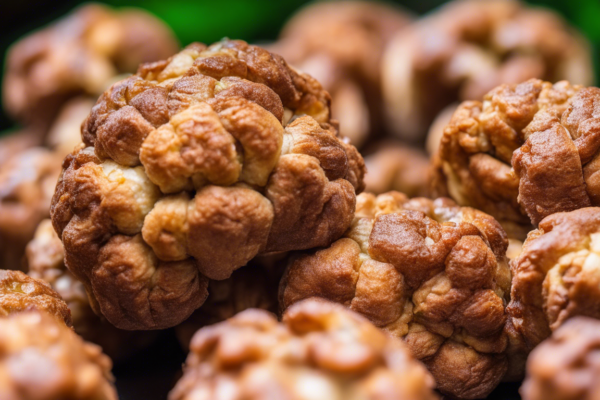Introduction
Eating kishmish, also known as raisins, is a popular and healthy snack enjoyed by people all over the world. These small, dried grapes are not only delicious but also packed with essential nutrients that offer a wide range of health benefits. In this comprehensive article, we will delve into the numerous advantages of including kishmish in your diet. From improved digestion to better heart health, kishmish is truly a powerhouse of nutrients that can enhance your overall well-being.
Nutrient Profile of Kishmish
Kishmish is loaded with essential nutrients that can boost your health in various ways. Here are some key nutrients found in raisins:
1. Fiber: Kishmish is an excellent source of dietary fiber, which is crucial for digestive health. Fiber helps regulate bowel movements, prevents constipation, and supports a healthy gut microbiome.
2. Antioxidants: Raisins are rich in antioxidants like resveratrol and quercetin, which help protect cells from damage caused by free radicals. Antioxidants play a key role in reducing inflammation and lowering the risk of chronic diseases.
3. Vitamins and Minerals: Kishmish contains important vitamins and minerals such as iron, potassium, and vitamin C. These nutrients are essential for maintaining overall health, supporting immune function, and improving energy levels.
Health Benefits of Eating Kishmish
Incorporating kishmish into your daily diet can offer a wide range of health benefits. Here are some of the key advantages of eating raisins:
1. Improved Digestion: The high fiber content in kishmish promotes healthy digestion and helps prevent digestive issues like constipation. Fiber adds bulk to the stool and supports the growth of beneficial gut bacteria.
2. Heart Health: The antioxidants in kishmish have been linked to improved heart health by reducing inflammation and preventing the oxidation of cholesterol. Regular consumption of raisins may help lower the risk of heart disease.
3. Weight Management: Despite being sweet, kishmish can be a good snack option for weight management. The fiber content helps you feel full and satisfied, reducing the likelihood of overeating.
4. Bone Health: Raisins are a good source of calcium and boron, which are essential for maintaining strong and healthy bones. Including kishmish in your diet can help prevent bone-related conditions like osteoporosis.
5. Boosted Energy Levels: The natural sugars in kishmish provide a quick energy boost, making them a perfect snack option before a workout or during a midday slump. The combination of carbohydrates and fiber can help sustain energy levels.
6. Improved Skin Health: The antioxidants in kishmish help combat free radical damage, which can contribute to premature aging. Including raisins in your diet may promote clearer, healthier skin.
7. Enhanced Immune Function: The vitamins and minerals in kishmish, such as vitamin C and iron, play a key role in supporting immune function. A strong immune system is essential for fighting off infections and staying healthy.
8. Blood Sugar Regulation: Despite being sweet, kishmish has a low glycemic index, which means it does not cause a rapid spike in blood sugar levels. This makes raisins a healthier alternative to sugary snacks.
How to Incorporate Kishmish into Your Diet
There are numerous ways to enjoy the health benefits of kishmish in your daily meals. Here are some ideas to incorporate raisins into your diet:
- Add them to oatmeal or cereal for a sweet and nutritious breakfast
- Include them in salads for a burst of flavor and texture
- Mix them into yogurt or smoothies for a quick and easy snack
- Use them in baking recipes like cookies, muffins, or bread for a natural sweetness
- Pair them with nuts for a convenient and satisfying trail mix
By getting creative with how you incorporate kishmish into your meals, you can enjoy their nutritional benefits in a variety of delicious ways.
FAQs
1. Are kishmish and raisins the same thing?
Yes, kishmish is the Hindi word for raisins. Both terms refer to dried grapes.
2. Can kishmish be beneficial for weight loss?
Yes, kishmish can be a healthy snack option for weight management due to its fiber content, which helps promote feelings of fullness.
3. Are there any potential side effects of consuming kishmish?
While kishmish is generally safe for most people, individuals with diabetes should consume them in moderation due to their natural sugar content.
4. How should kishmish be stored to maintain freshness?
Kishmish should be stored in a cool, dry place in an airtight container to prevent them from drying out or becoming sticky.
5. Can kishmish be included in a diabetic diet?
Kishmish can be enjoyed in moderation as part of a balanced diabetic diet, but individuals should monitor their portion sizes due to the natural sugar content.
In conclusion, kishmish is a nutrient-packed delight that offers a myriad of health benefits. By incorporating raisins into your daily diet, you can boost your overall well-being and enjoy a delicious and convenient snack option. Whether you prefer them on their own or as a versatile ingredient in various dishes, kishmish can be a valuable addition to a healthy lifestyle.




